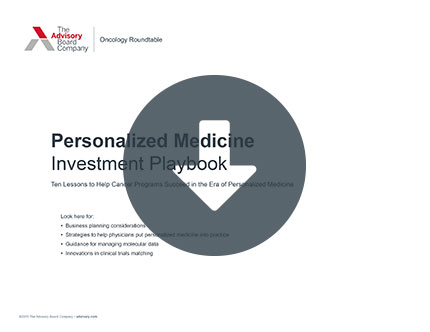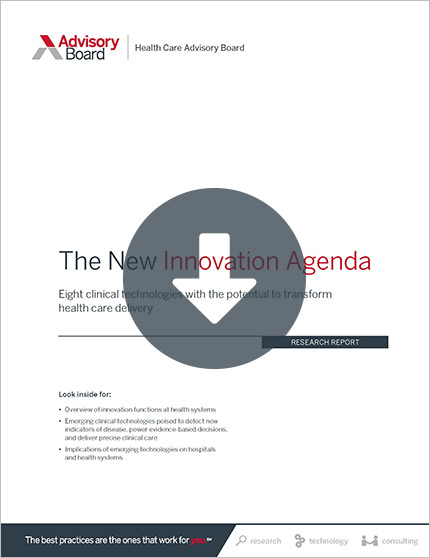Auto logout in seconds.
Continue Logout23andMe on Tuesday announced plans to offer personalized weight-loss advice to consumers based on their genetic data, but scientists say genetics-based weight loss plans have not yet been proven effective.
23andMe promises a 'personalized' diet and fitness program
The DNA-testing company on Tuesday announced a partnership with the artificial intelligence (AI) company Lark Health, which provides weight loss and diabetes prevention coaching through its AI platform. Lark's AI "coaches," which are available through an app, suggest personalized health goals based on users' exercise, eating, and sleep habits.
Through the new 23andMe partnership, Lark Health's two million users will be able to integrate their genetic data into the app. Once users opt in, the Lark app will pull their information from eight separately 23andMe reports, incorporating genetic predictions such as whether a user is sensitive to bitter foods, tends to sleep deeply, or is likely to benefit from particular weight loss approaches. This information can be used to personalize diet and exercise recommendations.
Emily Drabant-Conley, VP of business development at 23andMe, said the partnership "was born from our desire to get our customers to do more" with their 23andMe genetics results.
"You get the facts in 23andMe's report, but real behavior change is harder," said Julia Hu, CEO of Lark. "What we did is to take the results, not just the markers but the intervention most relevant to a person, and serve it up at the right time."
But is genetics-based weight loss coaching really possible yet?
Some scientists, however, expressed skepticism about the 23andMe announcement, saying that there is little to no evidence that weight-related genetic data is effective at personalizing healthy eating and weight loss.
"The idea is good, but without the proof of peer-reviewed publications with prospective study, we have no knowledge whether these algorithms have any benefits," said to Eric Topol, a geneticist at Scripps Research Institute.
In fact, one recent study suggested that people's perceptions of their own genetic predispositions may matter more than the genes themselves. For the study, which was published in Nature Human Behavior in Dec. 2018, researchers enrolled more than 200 participants and offered each a saliva-based DNA test. Then, they told participants whether they had certain genes related to diet and exercise, such as one genetic variant linked to difficulty with long-duration exercise or another linked with overeating.
The catch? The researchers deliberately misinformed some study participants about their test results, hoping to determine how much the perception of having "bad genes" affected people's behavior.
In later sessions, participants who had been told they had poor exercise-related genes tired more quickly on a treadmill, and those who had told they had a genetic tendency to overeat felt less full after drinking a shake—even when their real genetic results had revealed no such link.
The results of the Nature study indicate that "people tend to attribute more power to genes than they probably should," according to Bradley Turnwald, an author of the study.
As for the new 23andMe offering, Topol argued that until more research is conducted, "the value of [the app] is completely unknown, uncertain. It could be the coaching turns out to be the same for all people instead of the idea it is individualized" (Brown, Bloomberg, 1/9; Reynolds, New York Times, 1/9).
What providers should know about genetic testing and other new clinical innovations
Hospitals and health systems need to prepare for a new wave of clinical innovation, especially as leaders read about the promise of patient-generated data, artificial intelligence, and precision medicine. But which emerging innovations have the potential to truly transform health care delivery?
This research report explores the clinical technology pipeline to help health care leaders become more conversant in the major vectors of innovation, leading applications of new technologies, and the business implications for established providers.
Don't miss out on the latest Advisory Board insights
Create your free account to access 1 resource, including the latest research and webinars.
Want access without creating an account?
You have 1 free members-only resource remaining this month.
1 free members-only resources remaining
1 free members-only resources remaining
You've reached your limit of free insights
Become a member to access all of Advisory Board's resources, events, and experts
Never miss out on the latest innovative health care content tailored to you.
Benefits include:
You've reached your limit of free insights
Become a member to access all of Advisory Board's resources, events, and experts
Never miss out on the latest innovative health care content tailored to you.
Benefits include:
This content is available through your Curated Research partnership with Advisory Board. Click on ‘view this resource’ to read the full piece
Email ask@advisory.com to learn more
Click on ‘Become a Member’ to learn about the benefits of a Full-Access partnership with Advisory Board
Never miss out on the latest innovative health care content tailored to you.
Benefits Include:
This is for members only. Learn more.
Click on ‘Become a Member’ to learn about the benefits of a Full-Access partnership with Advisory Board
Never miss out on the latest innovative health care content tailored to you.



